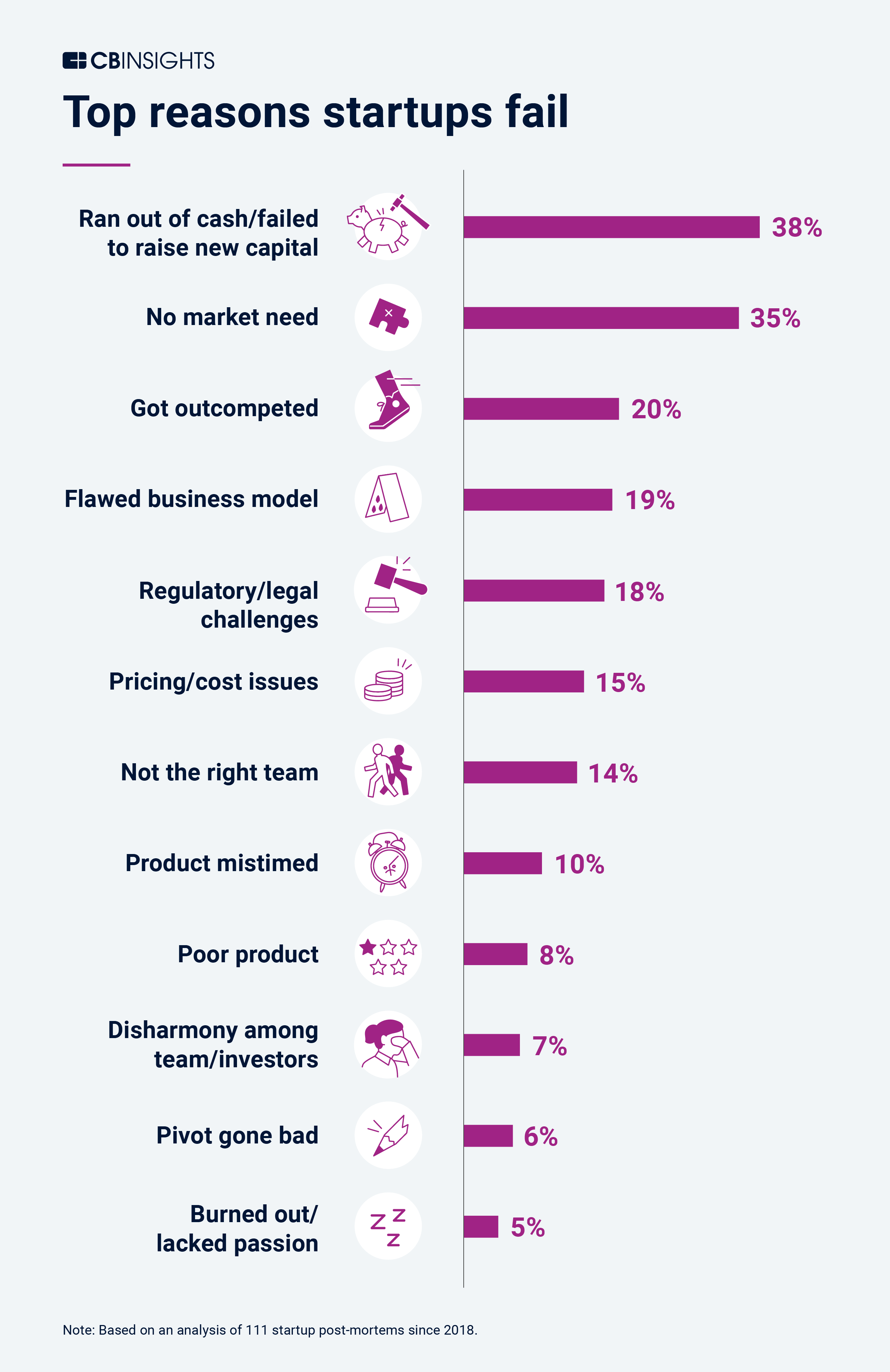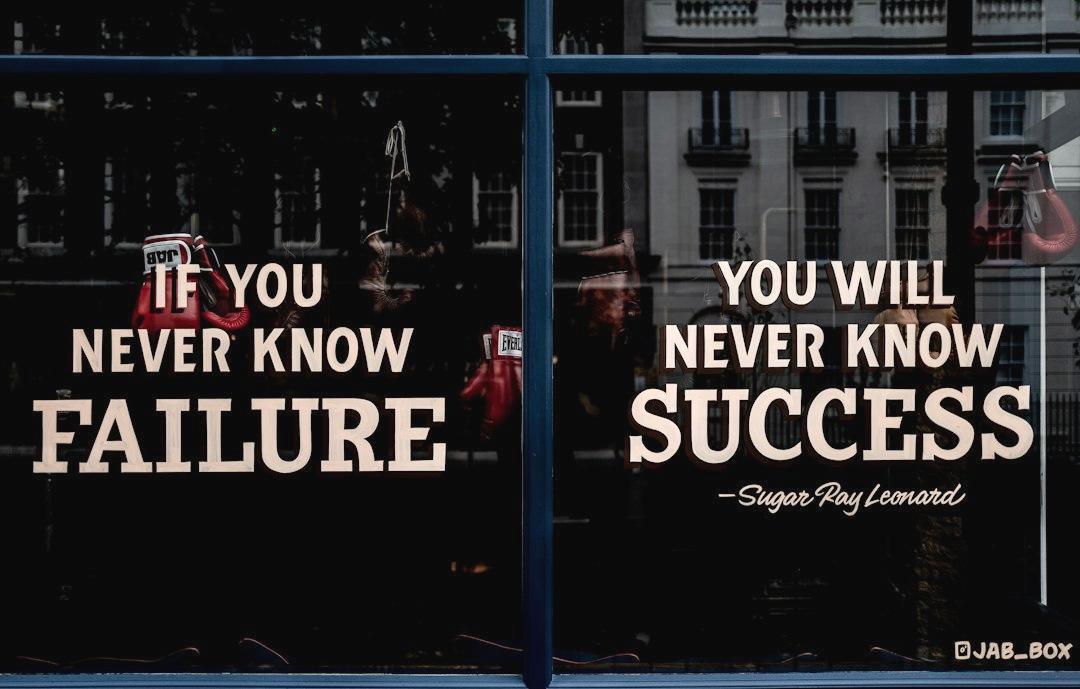Venturing into the startup ecosystem can be an adrenaline rush for entrepreneurs, bringing with it the anticipation of breaking new ground and the fear of stumbling. With such high stakes, understanding Why Do Startups Fail? can be as crucial as plotting the journey to success.
Direct Answer: Startups often fail due to a complex combination of factors including lack of market demand, poor financial management, technical challenges, team conflicts, inadequate marketing, ignoring prior failures, insufficient funding, and miscellaneous business risks.
Lack of Market Demand
A common pitfall for startups is crafting innovative products that, unfortunately, no one needs. A staggering number of ventures fail because they misconstrue assumptions for actual demand. It’s clear that market research is vital to ensure that there is an audience for your product before diving headlong into development.
Why Is Research Essential?
- Understanding consumer needs helps in designing products that solve real problems or enhance users’ lives.
- Validating demand can save precious time and resources that might otherwise be wasted on unprofitable ideas.
As Capchase points out, “Lack of market demand and poor timing is another popular reason why startups fail,” highlighting the importance of timing and market readiness.
Poor Financial Planning and Management
Navigating the financial rapids is often where startups either sail through or capsize. A lack of meticulous planning often leads to a startup’s demise as they burn through their cash reserves without achieving the necessary growth.
Avoiding Cash Flow Problems
* Establish clear financial projections to forecast future needs and expenses.
* Monitor spending rigorously to align with your business’s growth stages.
Reflecting on the insights from For Entrepreneurs, we’re reminded that “A fourth major reason that startups fail is because they ran out of cash.” It’s an all-too-common theme that adequate planning could prevent.

Source: CB Insights
Technical Implementation Challenges
Startups, especially in the tech realm, risk encountering obstacles that can impede or even halt product development. The intricacies of bringing a digital vision to life can be daunting without the right expertise.
Why Technical Expertise Matters
- Technology can be a business’s backbone or its breaking point.
- IT issues not only delay launches but can tarnish a startup’s reputation if not resolved proficiently.
Importance of Technical Expertise
Securing technical know-how is non-negotiable. Whether through a knowledgeable CTO or a partnership with experienced IT firms, it’s the buffer that protects against tech-related setbacks.
Conflicts Between Team and Investors
A less mentioned but equally detrimental issue is the clash of visions. Discord between founding members or with investors can unravel even the tightest of ships.
Cultivating Harmony and Vision Alignment
- Encourage open, transparent communication among all stakeholders.
- Rework company culture to incorporate flexibility and conflict resolution.
In the words of Forbes, “Clashing between leadership teams and investors… lack of cohesion [and] shared vision between the people involved can kill even the most promising startups.”
Marketing and Market Positioning
What’s a great product worth if no one knows it exists? Many startups fail to cut through the noise due to weak marketing strategies or poor positioning in a saturated market.
The Pillars of Strong Marketing
- Develop a compelling brand narrative that resonates with your target audience.
- Invest in data-driven marketing campaigns to optimize reach and conversion.
Marketing Mishaps
Remember, developing a top-notch product is only one part of the equation. Marketing prowess is needed to match it, ensuring your product finds its way to the right audience.
Marketing Mishaps
- Overlooking thorough market positioning analysis could lead to targeting the wrong customer base.
- Underestimating the power of a comprehensive marketing strategy can result in good products failing to make their mark.
Overlooking Prior Startup Failures
Many entrepreneurs forge ahead with an “it won’t happen to me” mindset. Yet, the roads littered with startup wrecks from the past provide invaluable lessons.
Learning from the Past
* Scrutinize the failings of others and adapt those teachings to your business model.
* Harness the power of data to avoid making the same mistakes twice.
Statistic-Based Decision Making
Today’s marketplace is rich with analytics. Using data to influence decision-making can be a make-or-break factor in the survival of a startup.
Insufficient Investor Interest and Funding
The quest for capital is a significant pressure point. Startups need a compelling business case to win over investors, but in a crowded market, catching and retaining their interest is an art in itself.
Wooing Investors with a Solid Business Plan
- Craft a persuasive pitch showcasing your startup’s potential and unique selling points.
- Prepare to address tough questions on scalability, revenue models, and long-term strategy.
Seeking Alternative Funding Methods
When the usual avenues are blocked, looking toward modern solutions like crowdfunding or venture capital can provide necessary funding impetus. For budding startups, understanding essential funding strategies from our past articles may also offer some guidance.
Miscellaneous Failures
Then there are the outliers – failures that arise from unforeseen circumstances such as legal issues, compliance oversights, and intellectual property disputes.
Mitigating Uncommon Risks
- Perform thorough due diligence in all legal and regulatory aspects relevant to your startup.
- Consider obtaining legal counsel to navigate these complex waters and protect your venture.
In the venture world, knowing the tales of companies that didn’t make it is just as crucial as those that did. Examining the collapse of Convoy, a Seattle startup, or understanding the legal intricacies faced by entrepreneurs could make all the difference in avoiding a similar fate.
Conclusion
The reasons behind startup failures are multidimensional and often interlinked. It’s not sufficient to focus on just product development or funding; a successful startup is one that masters the balance between innovation, market fit, operational efficiency, and adaptability. Whether it’s learning from past errors, fine-tuning your financial strategy, beefing up your technical team, or aligning visions with stakeholders, each cog in the wheel must turn smoothly. Let this article light the way, but remember, the path of each startup is unique, and so too are its solutions.





